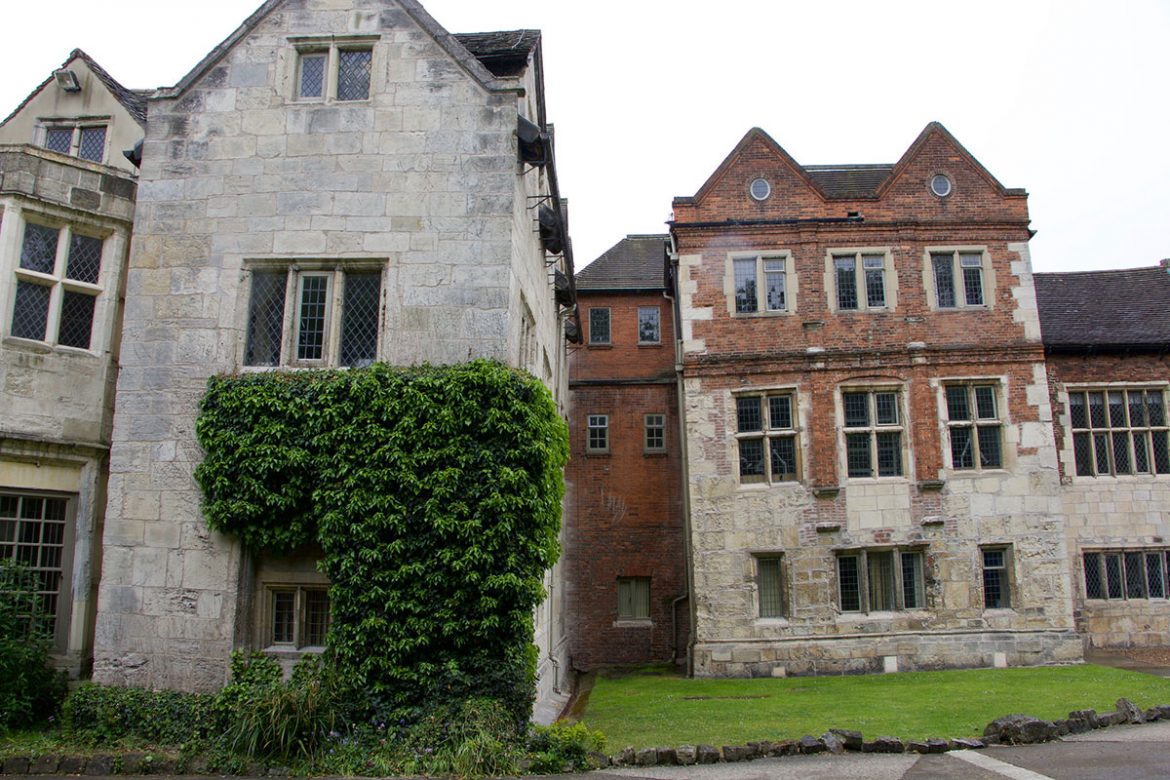It’s got to be out there somewhere.
York’s Roman amphitheatre has been missing for centuries. But experts reckon the picture above could hold a big clue to its whereabouts.
There were three major legionary bases in Roman Britain: one at Caerleon in Wales, one in Chester and one at Eboracum, aka York.
The first two both boasted amphitheatres. So York should have one too, says Stewart Ainsworth, leading archaeologist and member of Channel 4’s Time Team.
“It’s a massive legionary presence. It should have an amphitheatre – it will have one, it just hasn’t been found in my opinion,” he said.
The only question is… where?
That sinking feeling

The clue in the main picture above is the way the buildings appear to be leaning towards one another.
“An amphitheatre is a big, elliptical arena,” said Stewart. The way the buildings are leaning suggests “there’s a hollow under the ground.
“And if there’s a hollow under the ground, it might just be one of the indicators that there might be an amphitheatre there.”
It’s a theory developed by Tim Sutherland, archaeologist at the University of York. And the same thing happened to the buildings above the Chester amphitheatre.
Stewart added:
You’ve got the buildings maybe sinking into a hollow, that’s one clue.
And the site of the amphitheatre at Chester was preserved within the precinct of a medieval religious site. Here in York it’s within the precinct of St Mary’s Abbey.
The search is on

Stewart and Tim will be hunting for the amphitheatre during the Eboracum Roman Festival, which returns to Museum Gardens between June 1 and 4.
They will be using ground-penetrating radar to look underneath King’s Manor for any evidence of the amphitheatre during the festival.
“A curving wall would be good – but we can’t guarantee to find that in the time and space available,” said Stewart.
The Chester amphitheatre was discovered accidentally in the late 1920s. A new boiler was being put in a cellar and they uncovered some Roman masonry.
Something similar could happen here, Stewart said.
“This is a first attempt to do something serious at this level in York, but it could just one day turn up by somebody putting a sewer pipe in.
“We can’t guarantee the Roman amphitheatre will turn up in our lifetime. I think eventually, either by intent or by accident, it will turn up.”

Prior to the actual search for the amphitheatre, on Friday June 2 Stewart and Tim will be hosting a special event entitled The Discovery of the Chester Amphitheatre and the search for York’s Lost Amphitheatre.
Stewart will be talking about how the Chester amphitheatre was rediscovered, followed by Tim demonstrating how it could be possible to make a similar discovery in York.
More details about the event can be found here.
